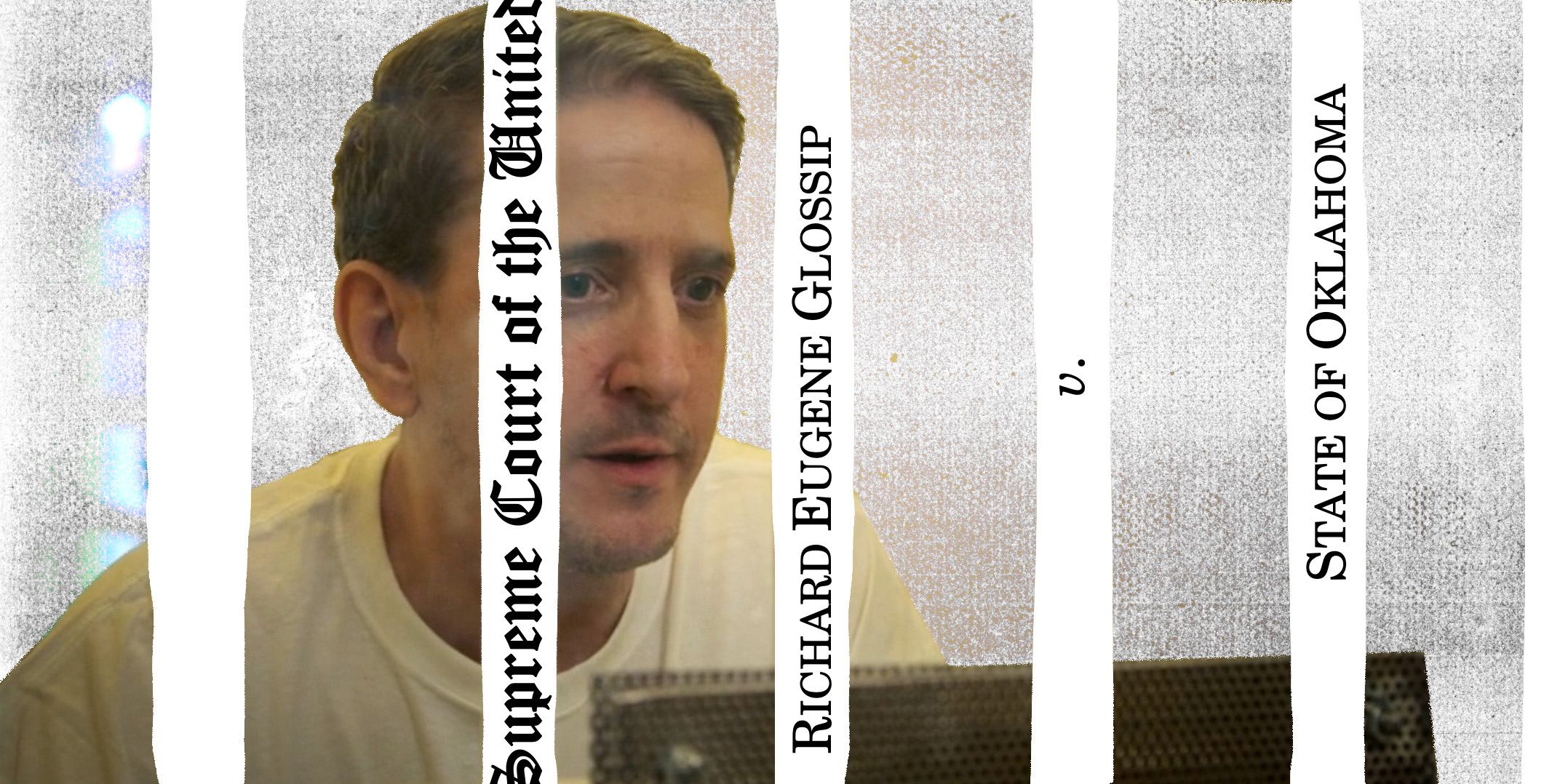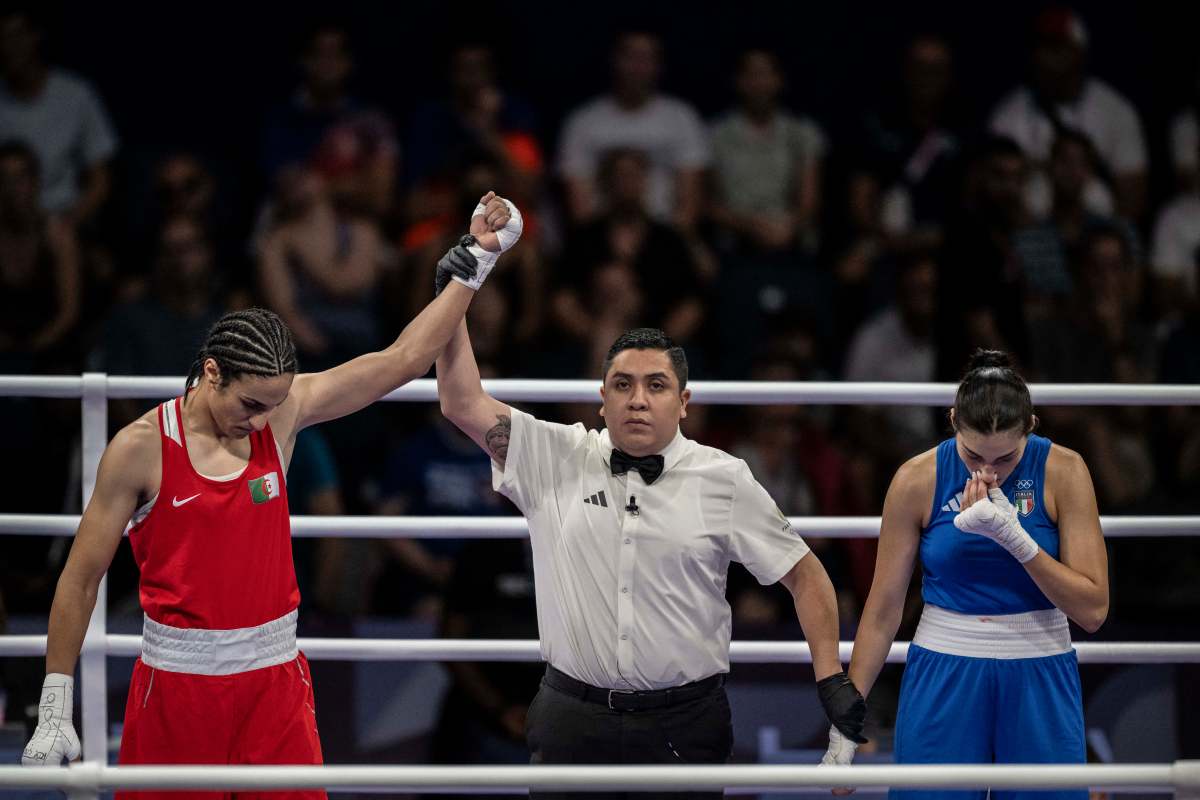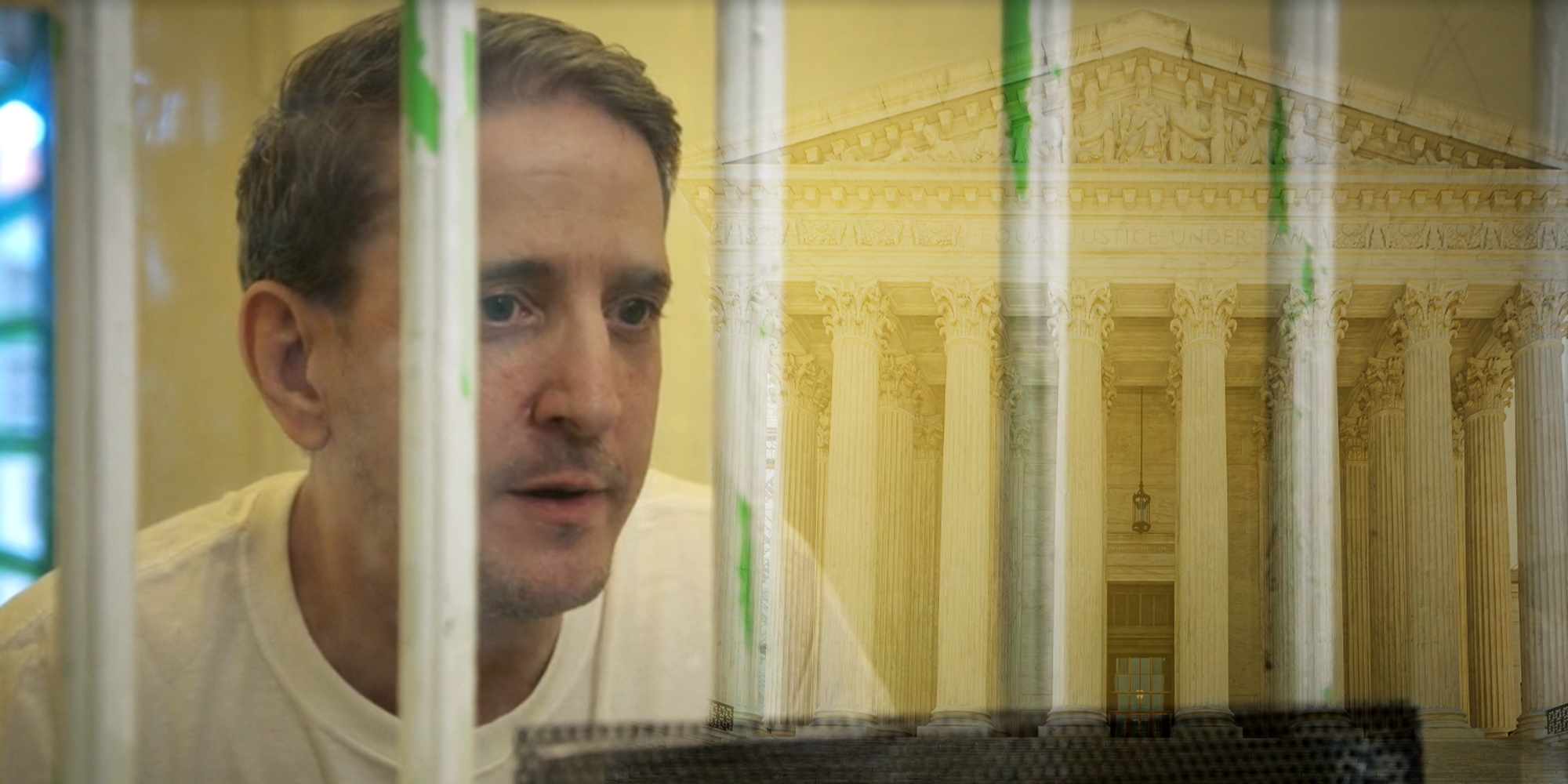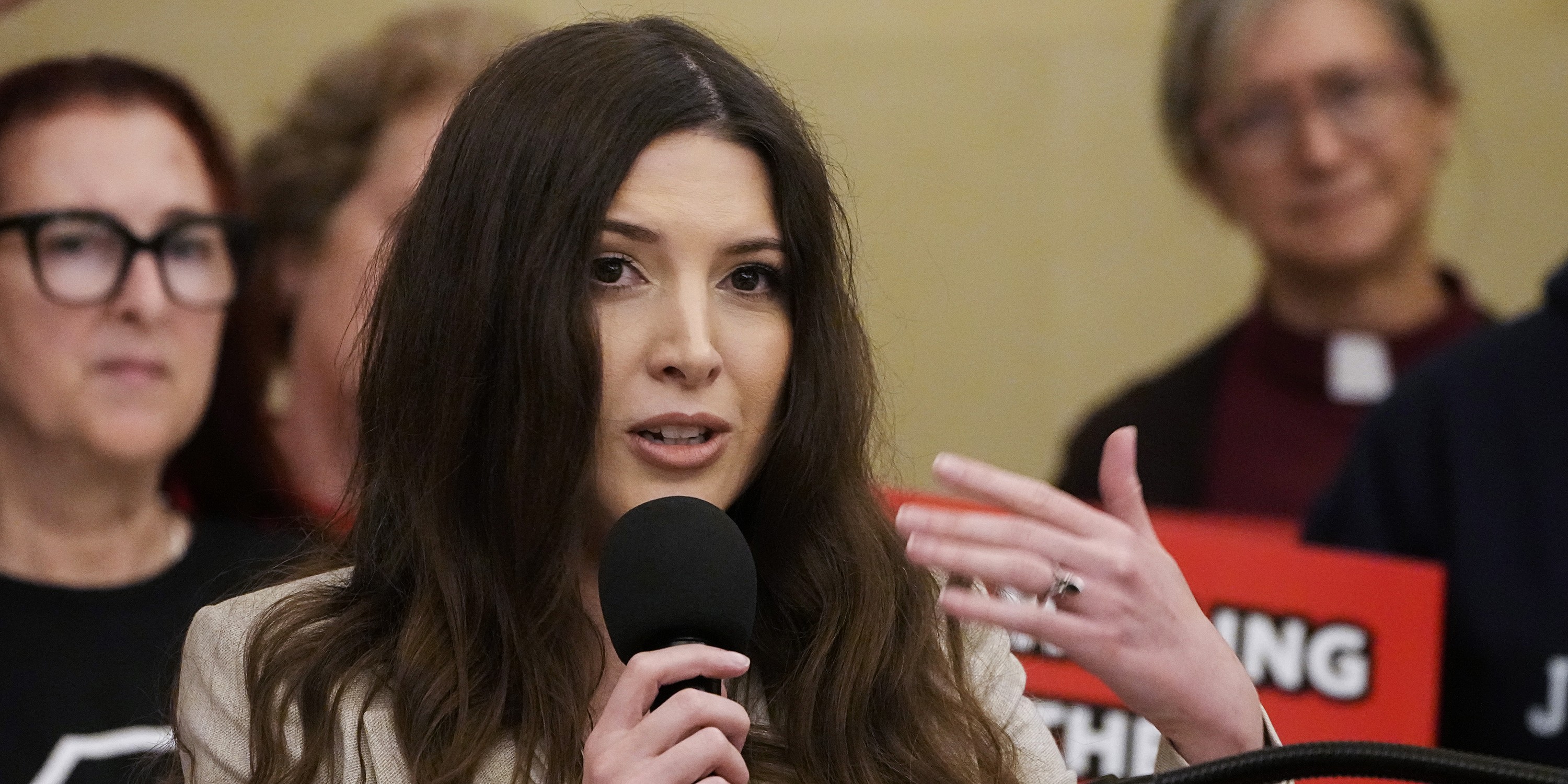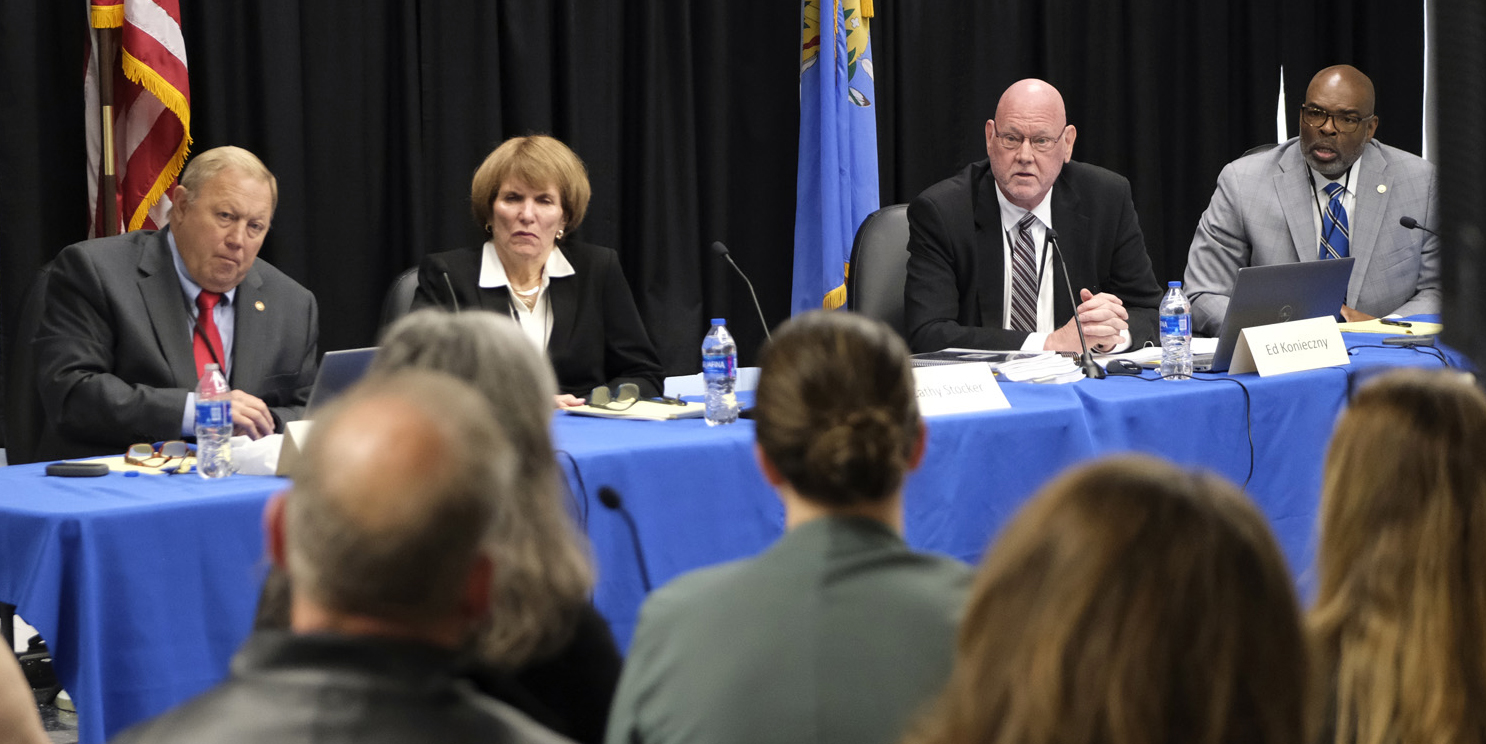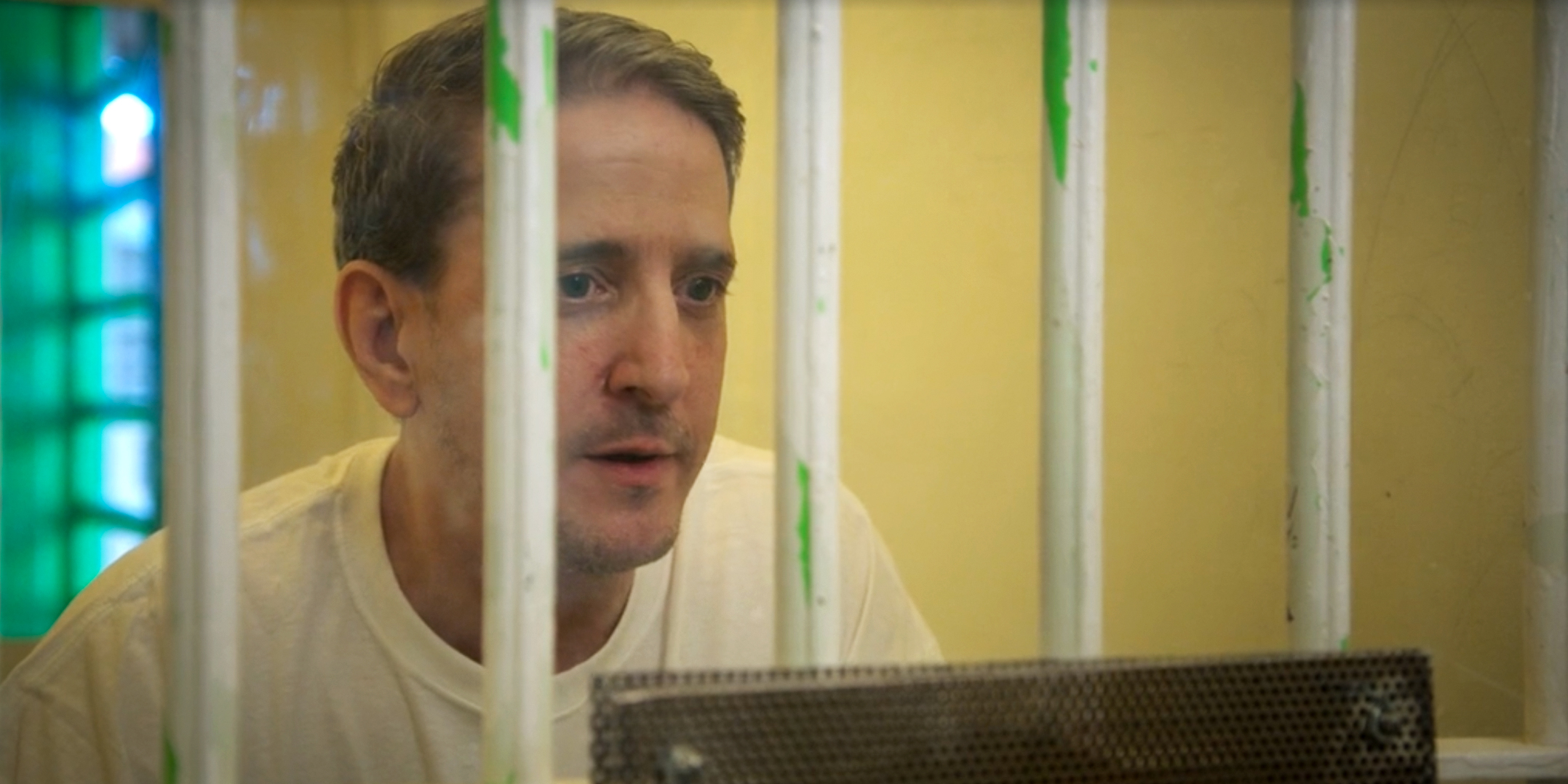To hear lawyer Christopher G. Michel tell it, the case against Richard Glossip is straightforward. Glossip, who has been on death row in Oklahoma for more than two decades for the brutal 1997 murder of his boss, is clearly guilty, Michel says, and there is no reason for the U.S. Supreme Court to stand in the way of his execution.
More than that, Michel argues that the court should be willing to force Oklahoma to carry out an execution that even its attorney general opposes.
Ordinarily, a state’s attorney general would be the one arguing to the high court that an execution should move forward. But since virtually the moment he took office in January 2023, Oklahoma Attorney General Gentner Drummond has taken unprecedented action to spare Glossip’s life. In Drummond’s view, the case against Glossip was so tainted by prosecutorial misconduct that his conviction should be overturned.
Drummond told the Oklahoma Court of Criminal Appeals as much last year, when he came forward to ask the court to vacate Glossip’s conviction and order a new trial. The court rejected the overture, however, clearing the way for Glossip’s execution. Glossip appealed to the Supreme Court for intervention, an effort that Drummond joined. As such, there was no one from Oklahoma arguing in favor of killing Glossip. Enter Michel.
Michel, a partner at the white shoe law firm Quinn Emanuel Urquhart & Sullivan and co-chair of its national appellate practice, has argued before the court 10 times. He was a speechwriter for President George W. Bush and collaborated on his memoir. More importantly, Michel worked as a law clerk to Chief Justice John Roberts and to Justice Brett Kavanaugh when he was a jurist on the U.S. Court of Appeals for the D.C. Circuit. When it became clear no one would defend the Oklahoma court’s ruling, Roberts tapped Michel to take on the job.
While it is extraordinary for a state attorney general to decline to defend a death sentence before the Supreme Court, it’s not entirely unusual for the court to appoint an outside advocate for a position not otherwise represented in a case. Michel, a seasoned Supreme Court litigator with impeccable conservative credentials, was well positioned for the job.
In a brief filed on July 8, Michel took on the task with gusto — even if his recitation of the facts of Glossip’s case, and of the lower court’s ruling, was misleading and incomplete. Michel argues that the court should pay no mind to Drummond’s concerns about the legality of executing Glossip. “Nothing in the Constitution compels a state court to provide a particular measure of deference to a state official’s confession of error,” Michel wrote. In other words, it doesn’t matter how flawed Drummond believes the case is, the court is under no obligation to take those concerns seriously.
Oral arguments in the case are expected to happen in the fall, with a decision unlikely to come before spring 2025. For Glossip, the court’s ruling could ultimately determine whether he lives or dies. But it could also have far-reaching consequences for criminal defendants across the country. Michel relies on arguments that dismiss long-standing protections against prosecutorial misconduct and the courts’ obligation to address it. In doing so, Michel encourages the justices to, at best, disregard decades of legal precedent meant to ward off wrongful convictions or, at worst, to undo them.
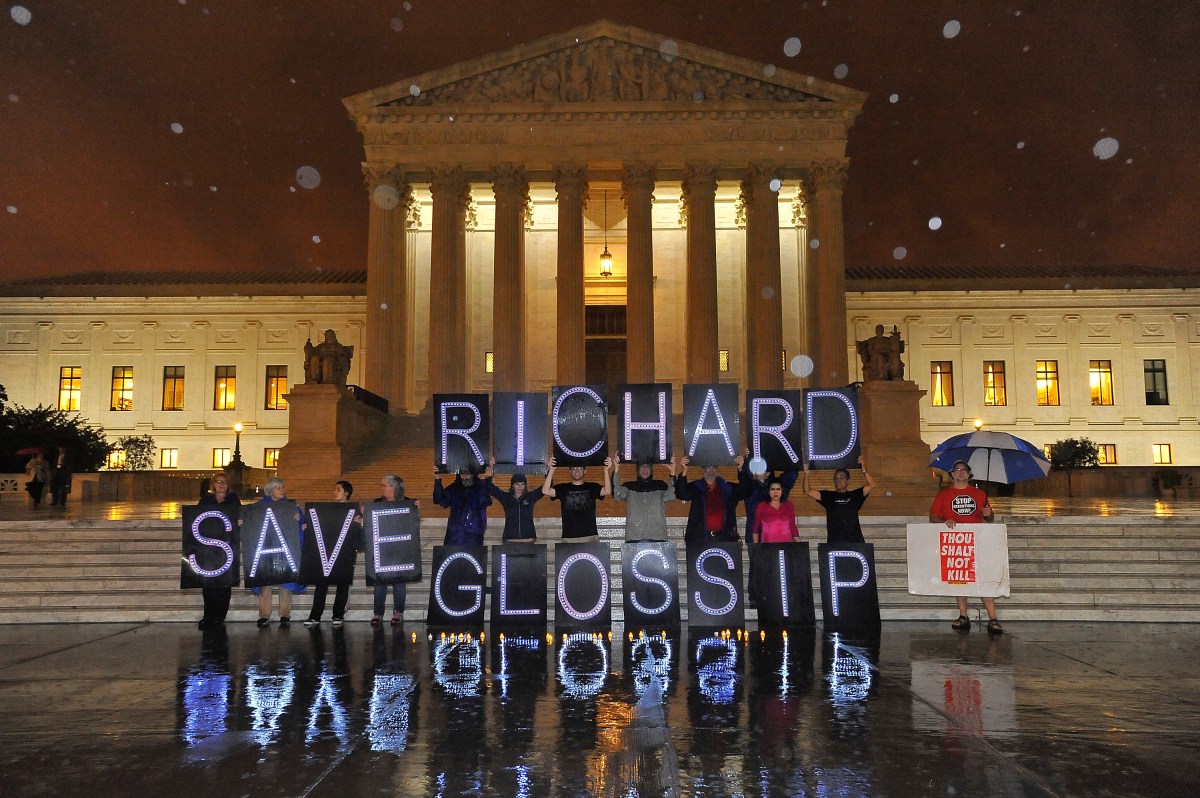
A Significant Omission
Richard Glossip was twice convicted and sentenced to die for the 1997 murder of Barry Van Treese inside a seedy Best Budget Inn that Van Treese owned on the outskirts of Oklahoma City. No physical evidence linked Glossip, the motel’s live-in manager, to the crime. The case against him was based almost entirely on the testimony of a 19-year-old maintenance man named Justin Sneed, who admitted to bludgeoning Van Treese to death but insisted it was Glossip’s idea. In exchange for testifying against Glossip, Sneed escaped the death penalty and was sentenced to life without parole. Glossip has always sworn he is innocent, and, over the last decade, evidence that he was wrongly convicted has steadily mounted.
Much of this evidence supports Glossip’s contention that Sneed — a chronic drug user prone to unpredictable bouts of violence — murdered Van Treese and only later set up Glossip as the mastermind. New witnesses have countered the state’s portrayal of Sneed at trial, where he was cast as a hapless follower who acted under Glossip’s complete control. Those witnesses have described Sneed as cunning, manipulative, and quite capable of killing a man on his own.
In August 2022, the state began releasing boxes of previously undisclosed case documents that included evidence of serious prosecutorial misconduct. The records show that Sneed gave false statements at Glossip’s second trial — and that prosecutors were aware of his misstatements yet failed to correct his testimony. While he was in jail, Sneed had been diagnosed with bipolar disorder and prescribed lithium to manage it. However, when he testified against Glossip, Sneed denied ever seeing a psychiatrist and said he had no idea why he’d been given lithium.
This was a significant omission. Sneed’s frame of mind was central to the question of whether he was capable of committing such a brutal and reckless crime on his own. Moreover, Sneed’s mental health disorder combined with his chronic drug use could have negatively affected his ability to accurately recall what happened the night he killed Van Treese. Knowing about this combination of factors might have given the jury reason to be skeptical of his account.
For years, Glossip’s lawyers had been trying to unlock records related to Sneed’s mental health. A competency evaluation prior to Glossip’s first trial noted that Sneed was unstable, but when defense lawyers sought access to Sneed’s health records they were rebuffed by the state, which called their efforts a “fishing expedition.”
Among the recently released case documents were notes from a meeting between Sneed and prosecutor Connie Smothermon that took place not long before Glossip’s 2004 retrial. In the notes, Smothermon wrote the name of a doctor — “Dr. Trumpet?” — and a reference to the powerful mood stabilizing drug lithium — “on lithium?”
The significance of those notes was immediately apparent to Glossip’s lawyers. As they later argued to the Oklahoma court, “Trumpet” was clearly a reference to Lawrence Trombka, the lone psychiatrist working in the Oklahoma City jail at the time Sneed was incarcerated there, and thus the only person authorized to diagnose Sneed’s disorder and to prescribe lithium. The notes made clear that Sneed had, at best, misrepresented the situation under oath — and that Smothermon did nothing to correct his misstatements.
At Glossip’s second trial, Sneed testified that while in jail he had a cold and asked for Sudafed, but that “somehow they ended up giving me lithium for some reason. I don’t know why,” he said. “I never seen no psychiatrist or anything.”
“So you don’t know why they gave you that?” Smothermon asked.
“No,” Sneed replied.
This exchange was at the heart of Drummond’s 2023 motion to vacate Glossip’s conviction — and of the question currently before the Supreme Court. “There is no dispute that Sneed was the state’s key witness at the second trial. If Sneed had accurately disclosed that he had seen a psychiatrist, then the defense would have likely learned … the true reason for Sneed’s lithium prescription,” Drummond wrote in his motion to the Oklahoma Court of Criminal Appeals. “With this information plus Sneed’s history of drug addiction, the state believes that a qualified defense attorney likely could have attacked Sneed’s ability to properly recall key facts at the second trial.”
“The state has reached the difficult conclusion that the conviction of Glossip was obtained with the benefit of material misstatements to the jury by its key witness,” he wrote.
In his brief to the court, Michel dismisses Smothermon’s notes as “cryptic” and “barely decipherable” and calls into question whether they mean what everyone else thinks that they mean. Glossip and Drummond’s argument relies on a “significant overreading” of the notes, Michel argues. Even if the notes do show that Sneed was prescribed lithium by a psychiatrist, he says, this information would not have made a difference to the jury. Sneed mentioned lithium in his testimony and everyone knows that lithium is prescribed for mood disorders, Michel argued, so knowing the full and correct story wouldn’t have changed the outcome of Glossip’s trial.
Widespread Violations
At play in the current dispute before the Supreme Court are three key legal principles designed to protect criminal defendants and to keep state actors honest. The first is a requirement that prosecutors turn over to the defense any materials that are exculpatory to the defendant or that could impeach a witness. The second obligates prosecutors to ensure that witnesses testify truthfully. The third requires courts to consider the cumulative impact on a case when prosecutors violate such rules.
In Glossip’s case, the state’s failure to turn over the notes regarding Sneed’s diagnosis and treatment violated the first principle, which comes from a case called Brady v. Maryland. Smothermon’s failure to correct Sneed’s false testimony about his use of lithium violated the second principle, which stems from Napue v. Illinois. Finally, Kyles v. Whitley enshrines the third principle.
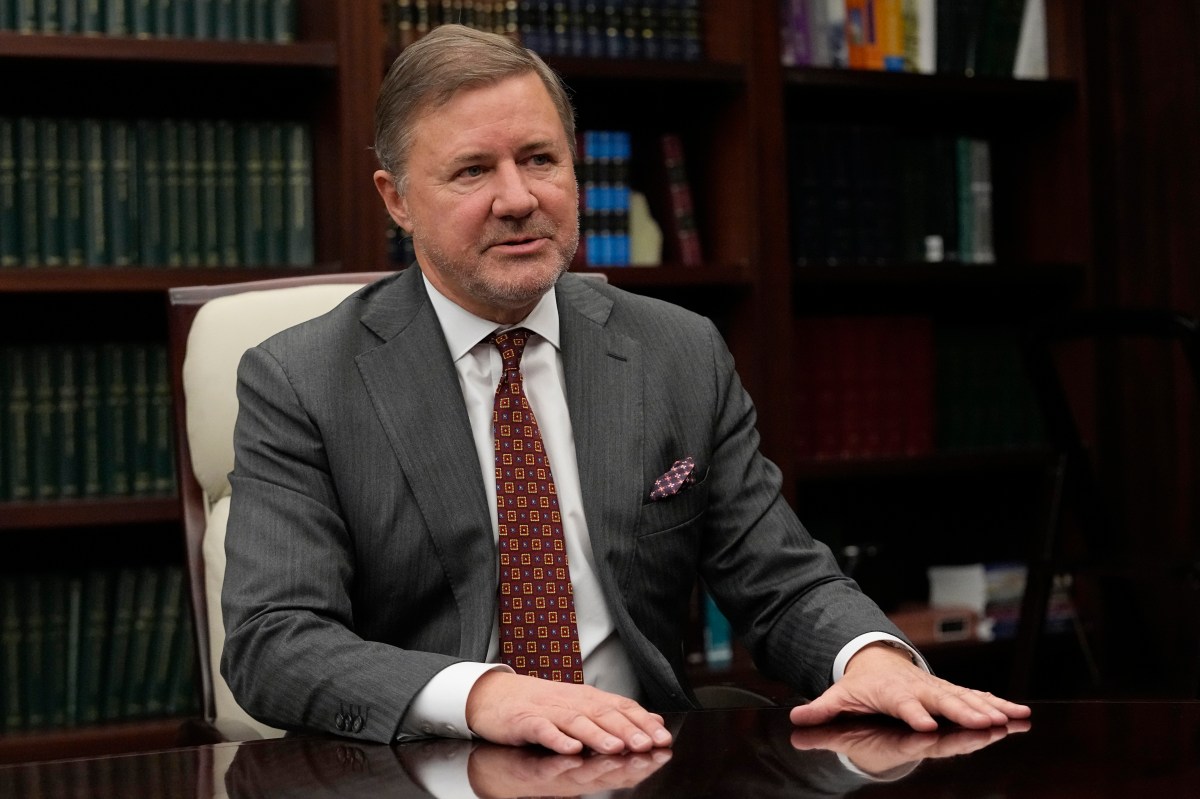
As Michel presents it, Drummond and Glossip’s lawyers want to overturn Glossip’s conviction based solely on the “Dr. Trumpet” note and Sneed’s misleading trial testimony — neither of which he sees as a violation of Brady nor Napue.
But this mischaracterizes what Drummond and Glossip’s lawyers are actually arguing. In their filings to the court, they argue that the note and Sneed’s false testimony are part of a constellation of violations. “The state’s suppression of Sneed’s psychiatric evidence did not occur in isolation,” Glossip’s lawyers wrote. “It was part of an expansive effort to unfairly shore up the testimony of the State’s star witness and mask vulnerabilities in the State’s theory of the case.”
The eight boxes recently turned over to Glossip’s legal team contained a slew of additional materials that had been previously hidden from the defense.
That includes documents revealing that Smothermon collaborated with Sneed’s attorney during the retrial to modify Sneed’s testimony to make it fit the forensic evidence. At the first trial, Sneed had denied attacking Van Treese with a knife even though there had been a knife found at the scene — and despite the medical examiner’s findings that there were puncture wounds on Van Treese’s chest. But at the second trial, Sneed testified that he had, in fact, stabbed Van Treese.
A rolling independent investigation into the case by pro bono law firm Reed Smith LLC unearthed additional evidence. Among those records was a letter written by Sneed to his public defender in 2003 — a year before Glossip’s retrial — in which he suggested he wanted to take back his testimony against Glossip. “Do I have the choice of re-canting my testimony at any time during my life, or anything like that,” Sneed wrote. Four years later, Sneed wrote to his lawyer again, saying there were a lot of things “eating at me” that “I need to clean up.”
Glossip’s lawyers have raised these issues in various appeals in Oklahoma, all of which have been rejected by the state Court of Criminal Appeals. But it has done so without considering the cumulative impact of the prosecutorial misconduct. The effect has been to diminish those violations to individual errors that the Oklahoma court — and now Michel — claims would not have made a difference to Glossip’s fate. This was the very issue the Kyles case was trying to address by requiring a holistic review.
“Absent this Court’s correction,” Glossip’s lawyers wrote, “the OCCA’s disregard of Kyles also heralds a powerful incentive for prosecutors to trickle exculpatory evidence just slowly enough that a defendant can never present a full-throated Brady claim.”
Dire Consequences
Aside from the cursory dismissal by the Oklahoma Court of Criminal Appeals, none of the evidence withheld from Glossip’s team has ever been fully vetted as part of an evidentiary hearing. Smothermon has never had to testify about the substance of her notes or her interactions with Sneed during Glossip’s trial.
Glossip’s team has asked for a hearing, but the Court of Criminal Appeals has rejected that request too. Yet even Michel’s brief suggests that an evidentiary hearing might be in order — and that could present a way forward that would allow the Supreme Court to avoid having to decide Glossip’s fate at this time.
“At a minimum,” Michel wrote, “the Court should remand for further fact development rather than vacating the conviction.”
If the Supreme Court chooses to go forward with the case and to rule in a way that degrades legal precedent, groups that have filed friend-of-the-court briefs in the case warn of dire, national consequences. Nearly a dozen legal scholars say that “embracing the OCCA’s decision,” for example, “would give prosecutors and other attorneys free rein to make decisions, on which the integrity of judicial proceedings will turn, that attorneys cannot be expected to make objectively and reliably. The result will be to increase the problem of false testimony in judicial proceedings — and, consequently, to erode public confidence in the courts’ commitment to judicial integrity.”
Correction: July 23, 2024
A previous version of this article misidentified the source of a 2003 letter from Justin Sneed to his public defender. That document was not included in the boxes of previously undisclosed evidence the state turned over to Richard Glossip’s legal team. Rather, it was unearthed in an independent investigation by a pro bono law firm.
Latest Stories

AIPAC Millions Take Down Second Squad Member Cori Bush
Bush was early calling for a ceasefire in Israel's war on Gaza. Then AIPAC came after her with millions of dollars.

The U.S. Has Dozens of Secret Bases Across the Middle East. They Keep Getting Attacked.
An Intercept investigation found 63 U.S. bases, garrisons, and shared facilities in the region. U.S. troops are “sitting ducks,” according to one expert.

What Tim Walz Could Mean For Kamala Harris’s Stance on Gaza and Israel
Walz allows for Harris to “turn a corner” in her policy on the war in Gaza, said James Zogby, president of Arab American Institute.


